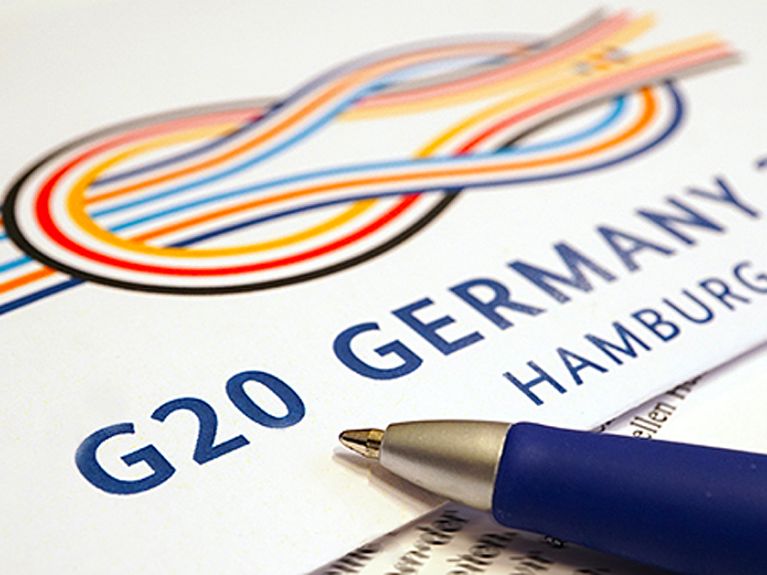G20 at a glance
Five questions and answers about the forum for international cooperation

What is the G20?
The Group of Twenty (G20) is the central forum for international cooperation on financial and economic issues. The G20 countries account for more than four-fifths of gross world product and three-quarters of global trade, and are home to almost two-thirds of the world’s population. Its decisions are influential and help to bring about reform at national and multinational levels.
Who belongs to the G20?
The G20 comprises 19 countries plus the EU. The countries are Argentina, Australia, Brazil, Canada, China, France, Germany, India, Indonesia, Italy, Japan, Mexico, Russia, Saudi Arabia, South Africa, South Korea, Turkey, the United Kingdom (UK) and the United States of America (US).
International organisations also participate regularly in the G20 summits, that is, the International Monetary Fund (IMF), the World Bank (WB), the Financial Stability Board (FSB), the Organisation for Economic Co-operation and Development (OECD), the World Trade Organization (WTO), the International Labour Organization (ILO) and the United Nations (UN). Furthermore, each Presidency can invite other countries, regional organisations and international organisations to the summit.
Why was the G20 created?
The meeting of G7 finance ministers and central bank governors was expanded to the G20 format for the first time in 1999. This meeting was prompted by the turbulence on the international financial markets during the Asian crisis. In the face of the financial crisis in 2008, the G20 meeting was raised to the level of heads of state and government.
How does the G20 work?
The G20 is not an international organisation, but rather what is known as an informal forum. This means it does not adopt decisions that have a direct legal impact. The G20 does not have an administrative council with a permanent secretariat or a permanent delegation of its members. This is why the Presidency, which rotates on an annual basis, plays a particularly important role.
How will civil society be included in the G20?
In Germany, the involvement of civil society in the processes of global governance has a long tradition. The dialogue with civil society is intended to provide an opportunity to discuss ideas and recommendations from the stakeholders involved and include them in the ongoing negotiations where appropriate.
As was the case with the G7 summit, Chancellor Angela Merkel has initiated a comprehensive dialogue process. In various dialogue fora, international civil society representatives from the spheres of business (Business20), non-governmental organisations (Civil20), trade unions (Labour20), science (Science20), think tanks (Think20), women (Women20) and youth (Youth20) will have an opportunity to set out their positions. Responsibility for organising these meetings lies solely in the hands of civil society. The focus will be on current G20 topics on which civil society, together with international partners, will draw up recommendations for the G20. In the run up to the dialogue for a, civil society representatives will have the opportunity to become involved at the negotiating stage at the level of the G20 sherpas.